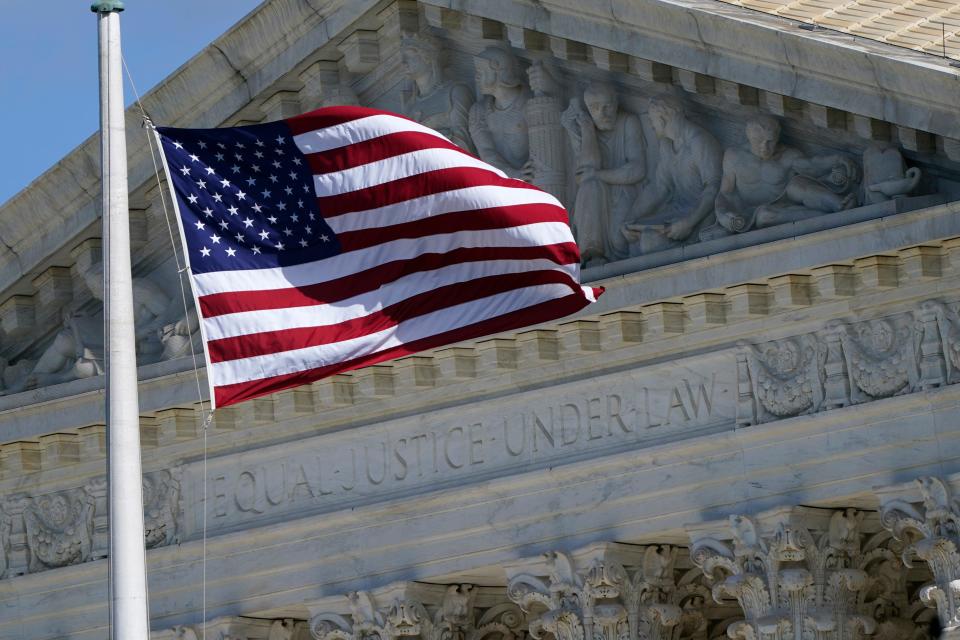JU law professor: Why amicus curiae briefs are a fixture at the U.S. Supreme Court

As the U.S. Supreme Court opened its 2022-2023 term on Oct. 3, an interesting brief caught the attention of lawyers, journalists and social media users alike. The Onion, a satirical news site well-known for its humor and biting commentary, filed an amicus curiae — or friend of the court — brief on behalf of an Ohio man seeking to be heard by the high court.
The Ohio resident was arrested for disrupting public services after creating a law enforcement look-alike Facebook page. He was acquitted of the charges, but now asks the court to rule that the arrest was a violation of his First Amendment rights.
The Onion’s brief poignantly argues, in a style consistent with the publication’s public commentary, that parody offers significant contributions to public discourse and should be protected.
Doing time for tweets: Saudi prison sentence for ex-Jacksonville man denounced by free-speech supporters
FSCJ professor: Understanding the moral and ethical foundation of the U.S. Constitution
The merits of the case and the humorous nature of the brief aside, this presents the opportunity to examine the role of amicus briefs filed in Supreme Court cases, which may be little known outside of legal circles.
Amicus curiae briefs represent a long-standing tradition in legal systems dating back to ancient Rome. The purpose is to provide additional, relevant information or perspective to the court beyond what is represented by the parties directly involved in the lawsuit. In essence, to act as a friend to the court and the issue at hand, since parties to the lawsuit are often limited in the scope or depth of information presented in their arguments.
These briefs, which are now filed in nearly every case argued before the Court, can satisfy a need for further discussion of historical context, technology specifications, sociological or scientific research and other data. For example, The Onion’s amicus brief includes a brief history of the use and import of parody, dating back to the first century B.C.
As is often the case with friendly advice, information contained in some amicus briefs is extremely helpful and others offer mere echoes of existing information. But the briefs of substance appear informative to the justices, or at the very least their law clerks, as they weigh the arguments and research the issues. Academic reports show that Supreme Court decisions cite amicus briefs with increasing frequency and in more than half of the cases decided in the last decade.
On occasion, amici filers also are referred or invited to participate during oral arguments. Some studies indicate amicus briefs can act as a signal to the court of the importance of the issues presented and so are particularly effective at the petition stage when the Court is determining whether to hear a case.
There are a wide variety of amicus filers, from large corporations to academics and special interest groups. In fact, anyone or any organization may file an amicus brief, with the assistance of a Counsel of Record who is a member of the Supreme Court Bar. In addition to the requirement for a Counsel of Record, the amicus must have permission to file from all parties involved or from the court and the briefs must conform to the style and content rules of the court.
From 2021: College administrators violating 1st Amendment rights not protected by qualified immunity
Letters: College students should know their obligations and plan accordingly on loans
Most, importantly, amici must adhere to the filing deadlines, as do all legal documents.
Claiming even a brief friendship with the Supreme Court carries benefits for the amici outside the courtroom. Amici are often motivated by the impact the decision will potentially have for them, or more simply, because this overture of friendship will raise their own profile. These filings can act as a powerful marketing tool, garnering media attention, particularly when related to a high-profile case and position the amicus as a thought leader on the issue.
While these more selfish motives can justify the expense of filing, most amici also offer these friendly briefs from the altruistic desire to share their expertise and provide the court insight to a particular issue.
Mutual benefit is the hallmark of a good friendship and one of the reasons that amici have become a fixture at the U.S. Supreme Court.
Special thanks to JU College of Law Librarian and Assistant Professor Colleen M. Skinner for her assistance in researching this column.

Courtney Barclay, Ph.D., JD, APR, Jacksonville University College of Law
This guest column is the opinion of the author and does not necessarily represent the views of the Times-Union. We welcome a diversity of opinions.
This article originally appeared on Florida Times-Union: JU law professor: Amicus curiae briefs a fixture at US Supreme Court

 generic
generic 